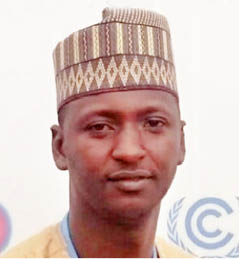Don proffers panacea for strikes in high institutions
A lecturer has offered suggestions toward resolving disagreements between labour unions in schools and higher institutions that often lead to strike actions and the stalling of academic activities. Most of the strikes by academic and non-academic staff are fuelled by wage disputes and crumbling infrastructure. The Dean, Faculty of Environmental Science, Nasarawa State University, Keffi, […]

Professor Nasiru M. Idris
A lecturer has offered suggestions toward resolving disagreements between labour unions in schools and higher institutions that often lead to strike actions and the stalling of academic activities.
Most of the strikes by academic and non-academic staff are fuelled by wage disputes and crumbling infrastructure.
The Dean, Faculty of Environmental Science, Nasarawa State University, Keffi, Professor Nasiru M. Idris, suggested in an open letter to President Muhammadu Buhari that a meeting with relevant stakeholders in the educational sector, especially the Nigeria Union of Teachers (NUT) as well as labour unions in polytechnics, universities and colleges of education, should be arranged from time to time “for concrete suggestions on how to end strikes, improve facilities and quality of education.”
He said the recent approval for the establishment of a National Commission for Secondary Schools by the government would go a long way in improving the standard of secondary schools in the country, adding that the authorities should bear in mind that secondary school was the platform as well as foundation from where students properly aligned themselves to what they intend to study at the tertiary level.
“Therefore, this level is very important and requires proper attention. The government should get qualified teachers at this level and they should be computer literate so that they can help in increasing students’ achievements generally and in computer studies in particular.
“This is because, without qualified and skilled teachers in our secondary schools, teaching and learning at this level will be in a serious dilemma,” he said.
According to him, government has a big role to play to enhance the quality of basic education, which was the first and most important stage of learning for the younger populace.
The essence of primary education, he said, was to ensure the broad based development of pupils so as to develop their cognitive, social, emotional, cultural and physical skills to the best of their abilities, thus preparing them for the future.
“Therefore, learning and instructional materials are very important at this level for the purpose of revitalization of education at all levels. I am therefore calling on the Federal Government in collaboration with both the states and local governments to do the needful for this stage as the number of public schools in the country is seriously declining and the number of private schools is on the increase,” he said.
He stated that refurbishing the school system would augur well for the future of Nigeria as majority of the populace could not afford to send their children to private schools due to exorbitant fees.
